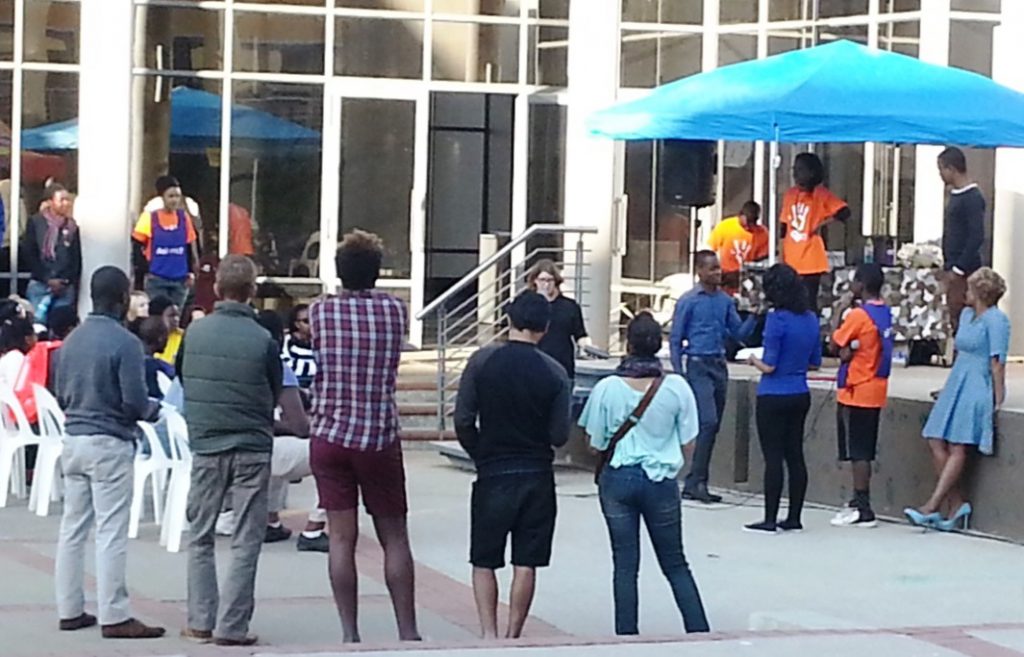
leading the academic debate
On 20 July 2015, IWSN-funded students hosted an academic debate with 50 first year social science students at Monash South Africa’s Orientation Week. Free to choose the topic, IWSN students decided to focus on the highly topical question of the existence of a looming water crisis in southern Africa.
Under this main theme, the students posed a number of motions that spoke to the main disciplines in the School of Social Science, covering aspects of Sociology, Geography, Political Sciences, Economics and Media and Communications. The first year students were free to debate for and against the four motions, which were posed one at a time.
Each IWSN student took charge of one motion. After briefly offering some informative background information, each student posed their motion to the audience in the form of a fun and engaging role play.
The four motions were:
1. The importance of including women in water-related decision-making processes at different levels of society as a way of tackling the potential water crisis in southern Africa;
2. The role of the media in reporting the water crisis in southern Africa;
3. The conundrum of a southern African water crisis and poverty in relation to child development;
4. The question of equity and justice in the management of water bodies that span across more than one country.
Some interesting discussions took place. The highly topical nexus of transboundary water management interestingly led to the longest and most engaged debate. IWSN students used the example of the Okavango River bordering Botswana and Namibia, and one student represented the president of each country, taking a very egotistic position towards their country in order to stir up the debate. A lively discussion emerged on whether transboundary rivers and the question of ownership of the water would raise the potential for conflict or cooperation. Towards the end of the debate, however, many of the students had agreed that embracing cooperation and partnership in transboundary water management would be the way forward. Hereby, involving institutions of the United Nations, the African Union or SADC were mentioned as a possible dispute settlement process should two or more countries experience tensions or conflicts over a shared water body.
The inclusion of women in decision making over water also sparked lively debate with many male students suggesting that women should not be involved because of their roles in the household. The counter argument, posed mainly by female students, was that women should be involved in the decision making because of this very role they play in the household as the primary users of water within the household.
Debating the supposedly investigative role of the media also produced an interesting discussion. Some first year students suggested that “the media is truly controlled by government and it is not reporting and showing the realities and facts of water crisis because it is trying to protect the government and paint a picture that the government is delivering positively in water management.”
In concluding the debate the majority of students settled to the motion that the water crisis in southern Africa is true and real and indeed a highly complex issue. Reflecting on the experience of hosting an academic debate with new first years, IWSN students suggested that “the debate was a way of engaging and interacting with other people’s views concerning the water crisis.” The debate was enjoyed by everyone who participated and academic engagement of this nature should be encouraged on a more regular basis.
